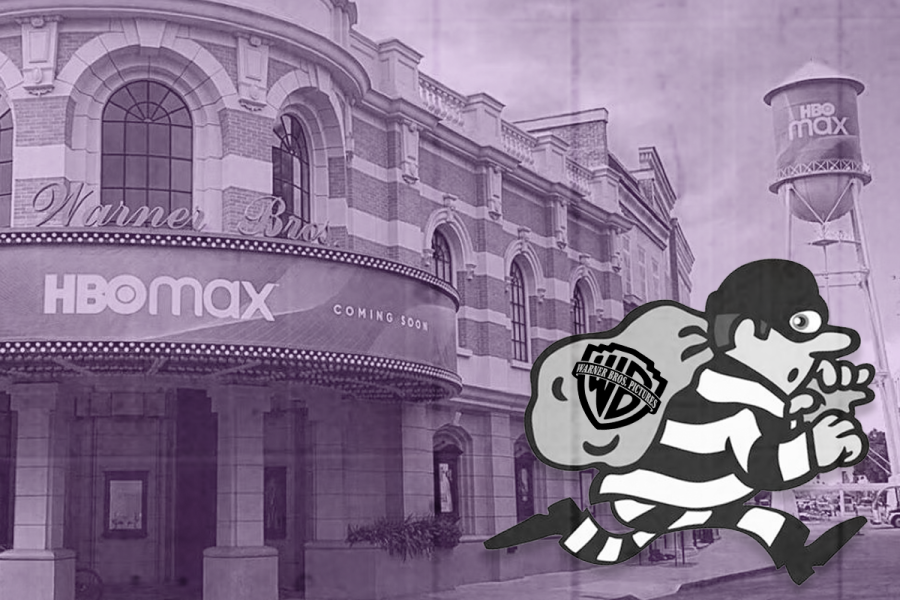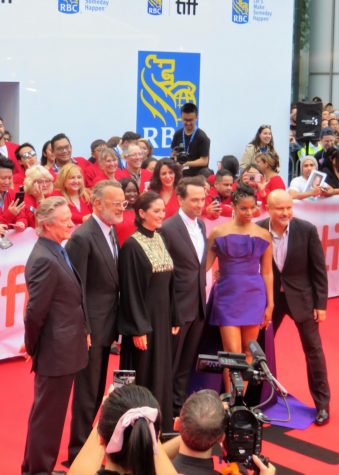The Rise and Fall of HBO Max
The decision by Warner Bros. Discovery to remove shows from streaming platforms for money will backfire
September 28, 2022
Warner Bros. Discovery, Inc. recently acquired HBO and is planning to merge the platforms HBO Max and Discovery+ into one streaming service. To facilitate this, they are choosing to remove content from both sites without any notice or information about what will happen to the pulled shows.
So far, they have removed at least 36 shows under the guise of saving money to ensure that HBO Max remains a “viable business.” Part of the profit will come out of employee pay since by removing existing content rather than canceling it, Warner Bros. Discovery does not have to pay royalties or residuals to the people who worked on the shows. As John Oliver, who hosts an HBO show, pointed out, cutting the shows can also be used for tax write-offs. Although this removal should save millions of dollars, it will be nowhere near CEO David Zaslav’s overall goal to save $3 billion. This means that we are likely to see more media pulled or never released.
Furthermore, this means that some TV shows and movies — most notably “Batgirl,” which was canceled long after production on the film concluded — may never be seen. Some shows are still available to buy per-episode or per-season, while others also air on cable. However, there are a few that have only ever been available on streaming services, meaning that they are nearly impossible to find now. It remains uncertain if there will be a long-term way to watch these shows and films legally.
Some are currently available on Amazon and iTunes, though the creators are not convinced that this will remain true. In the case of one show, “Summer Camp Island,” Cartoon Network will air the final season, but whether it will be available on demand is unclear. Others have had everything, including the soundtrack, scrubbed from the internet, and that content may never be available legally again.
The complete removal of the shows also has horrible consequences for the creators. Residuals don’t just serve as a paycheck for them — they also go toward their union to fund health care, meaning many could lose their health insurance entirely.
This serves as a clear reminder for all creators that they are at the mercy of streaming services. These events are disheartening and hurt the relationship between creators and networks, who weren’t told in advance that their shows were being removed. Given that many creators already are underpaid and overworked, this move will discourage new creators and may drive existing ones out.
By showing that they only care about money, Warner Bros. Discovery has made it clear that they have no respect for creators. The company will likely lose out on new show ideas because few creators will want to work for them, given that at any moment, even before release, their projects could be cut.
Streaming services also do not take into account anime’s rise in popularity.
In addition, many of these shows were very popular, so Warner Bros. Discovery can’t claim it only removed underperforming shows. A lot of the shows removed were animated, a style frequently associated with children’s media in Western culture — although that doesn’t stop millions of adults from enjoying Disney movies and rewatching nostalgic shows. “Avatar: The Last Airbender” is popular enough to get another live action remake and is widely considered a a great piece of media for both children and adults. On the other hand, adult animation, such as “Archer” and the Adult Swim catalog, is often not taken as seriously as live-action programs.
Streaming services also do not take into account anime’s rise in popularity. For example, shows like “One Piece” and “My Hero Academia” are very popular in the United States. Now is quite possibly the worst time for Warner Bros. Discovery to show just how little they respect animation, as other streaming services who want to take advantage of the medium’s popularity will now have less competition.
Warner Bros. Discovery also failed to consider the reactions from fans to the company cutting their favorite shows. Many users are threatening to cancel their subscriptions, and some already have. For example, one Twitter user, @HYELa, stated that after the removal of “Close Enough,” they will no longer be paying for an HBO Max subscription.
A decrease in the service’s number of subscribers means a decrease in profits, and even those who aren’t fans of the media currently on the chopping block are sure to be concerned by the swift and widespread loss of shows and movies. As Kayleigh Donaldson wrote in an article on the issue, “You’re not Disney. People aren’t slavishly loyal to your brand.” Arguably, even Disney would have issues if they attempted a drastic move like this, given the blatant disrespect for both creators and fans of the shows.
At the end of the day, Warner Bros. Discovery is the bad guy for prioritizing money over art and the livelihoods of its workers. The creators are the victims of the company’s greed, and Warner Bros. Discovery will suffer when their subscribers side with creators over the company’s crusade for more money.





















